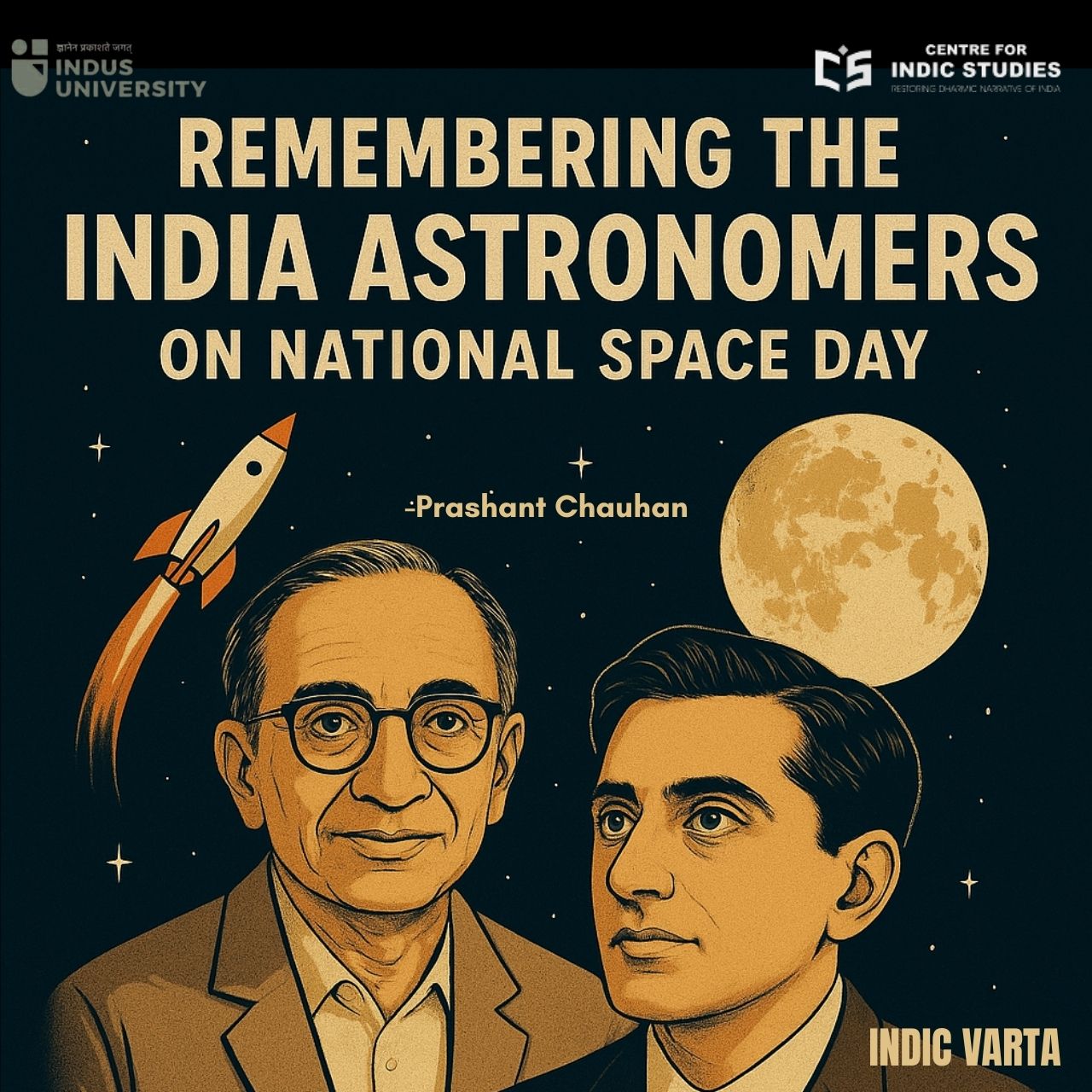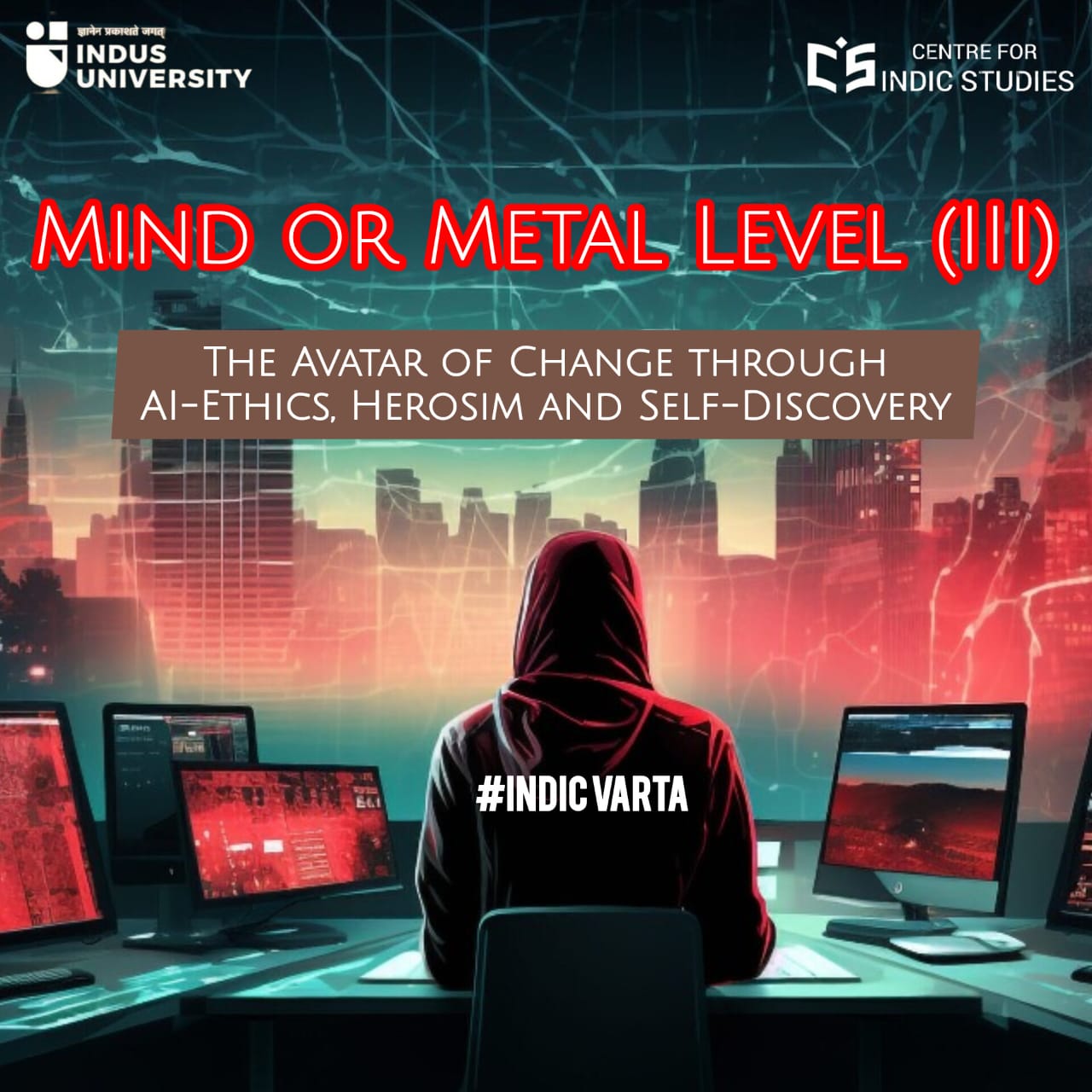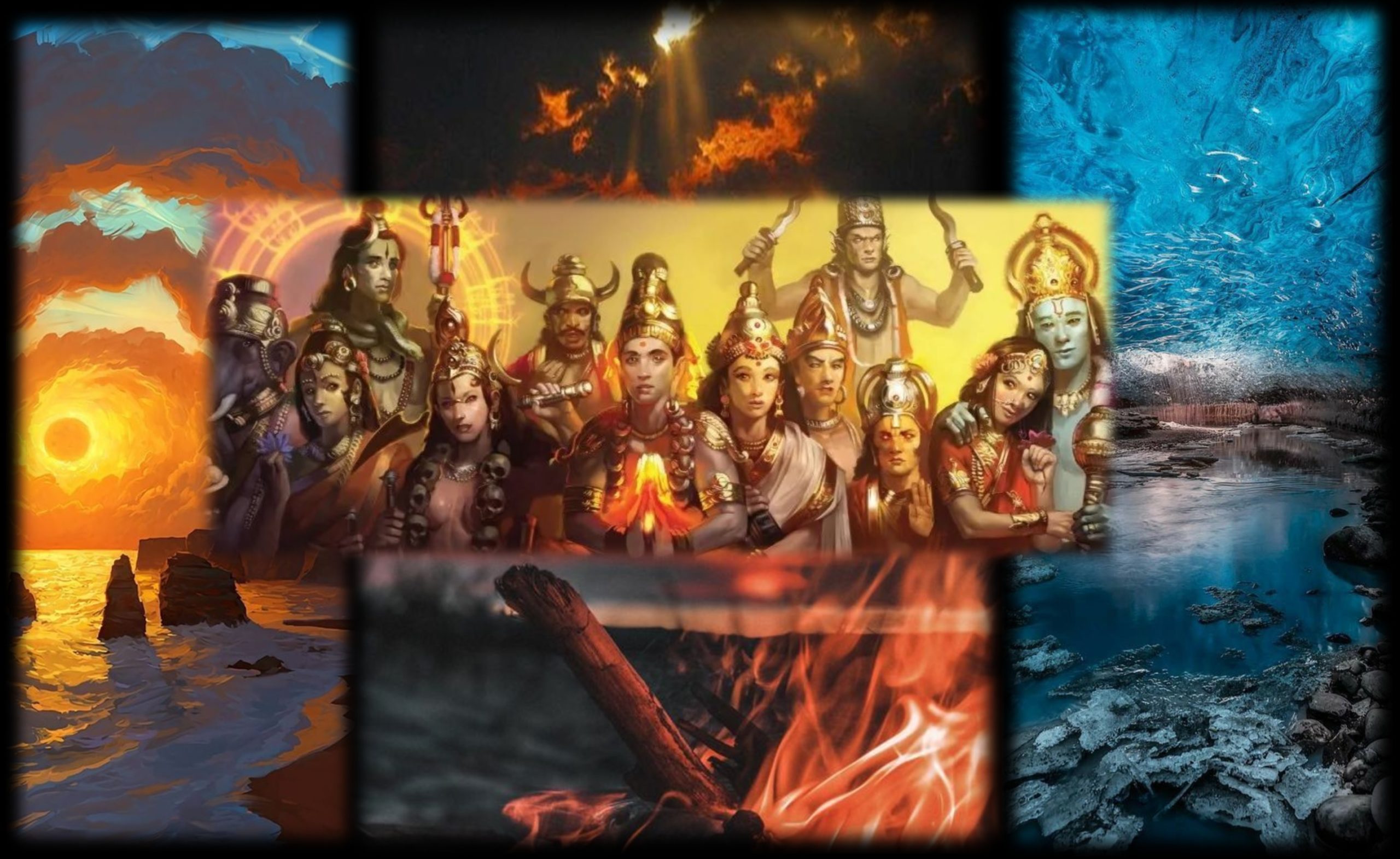- Visitor:34
- Published on:
Examination of Monotheism – Dharma vs. Religion – 4
In this brief excerpt Sita Ram Goel explains about the differences between the Tradition of Advaita and the Tradition of Monotheism. Differences arise when different individuals espouse the opposite traditions of Advaita and Monotheism intellectually and cherish them consciously. Then the tradition of Monotheism gives birth to Aurangzeb, and the tradition of Advaita to Shivaji.

Firstly, Monotheism presents no proof in support of any of its propositions. All its arguments are specimens of round-about logic. Existence of the One God is accepted because the prophet testifies to that existence. But the status of the prophet is hailed because he claims that the One God speaks through him.
If the exponents of Monotheism are asked whether any other person can, by spiritual seeking, attain that state of consciousness by attaining which the prophet had heard the commandments of the One God, they unanimously denounce it as inconceivable. Nor do they concede to any other person the capacity to see the One God directly by any method of spiritual seeking. To meet the One God directly is not possible for any other person before the Day of Judgment. Again, it all depends upon the sweet will of the One God as to when and whom he may send as his prophet.
In the history of Monotheism, it has happened many a time that persons more than one proclaimed themselves as prophets. Their dispute could be settled only when one of them killed the others or got himself killed. In this situation, it cannot be decided whether the One God that the prophet has been raving about, has any real existence or not. Nor can it be said that the commandments which the prophet has issued in the name of the One God are not the ravings of his own mind.
In this context, the tradition of Monotheism is wholly contrary to the tradition of Advaita, which regards direct perception as the only proof, and which gives equal right to all humans to realize the supreme truth directly.

Secondly, Monotheism recognizes truth not as eternal but as the latest. The truth that the prophet reveals thorough his sayings and, doings was not known to anyone before his advent. This definition of truth can only be termed as downright ridiculous. And when it is said that truth has become complete after the advent of the Last Prophet and that nothing can be added to or subtracted from it, then this definition contradicts itself. Truth, if it is the latest, cannot be complete till the end of time. And when countless persons born before the Last Prophet or in his time or after him, are pushed into hell simply because they have failed to profess faith in the Last Prophet, then Monotheism has to be termed as vile.
All these persons could not hear the message of the Last Prophet because either they were born before him or because no mullah or missionary could reach them. How can these persons be blamed for the offence of disregarding the Last Prophet?
In this context, the tradition of Monotheism is wholly contrary to the tradition of Advaita, which regards truth as eternal and equally accessible to all persons at all times and at all places.
Thirdly, Monotheism regards truth not as impersonal but as personal. The prophet alone is the person who can know or hear the truth. All other persons have to borrow that truth from the prophet and practice it as such. Consequently, the prophet very soon usurps the place of the One God. Without submission to the prophet, worship of the One God is not possible. N0T can the gates of heaven open without recommendation from the prophet. In this situation, it should not be a matter of surprise if the One God takes leave or is left out. This is the inevitable transformation of Monotheism.
In this context, the tradition of Monotheism is wholly contrary to the tradition of Advaita, which regards truth as impersonal and admits that (whoever seeks, he finds).
Fourthly, Monotheism renders the supreme power impotent and the entire Cosmos an extension of matter. The One God, intoxicated as he was with his omnipotence, did create the universe out of Nothing or the Void, but, for the same reason, he himself remained outside his own creation. He became incapable of establishing contact with his own creatures and, in order to convey his message to human beings created by himself, he had to seek the help of a prophet. To describe such a helpless One God as almighty is ridiculous. This debasement of the One God is surpassed by the debasement of his creation.
As a consequence of the One God remaining outside, whatever there is in the Cosmos is material and man has unhindered right to use it all. Therefore, with the decline of Christianity in the Western countries, there erupted a volcano of materialism and consumerism. The natural resources began to be ruthlessly exploited. The incurable epidemic of consumerism which is pushing the word towards destruction today, had its seed in the Monotheism of Christianity. Islam followed the same path.
In this context, the tradition of Monotheism is wholly contrary to the tradition of Advaita, which sees extension of the same divinity in all animate and inanimate beings and imposes limits on consumption.
Fifthly, the Supreme Being of Monotheism (whether Jehovah or Allah) comes out as a despot who is also an arbitrary, partisan, and jealous gangster. If the sayings and doings which have been sanctioned in the various scriptures of Monotheism as commandments of the One God, really emanate from that One God, then there remains no scope for doubt that the One God is simply another name for Satan described in those very scriptures. That is why the devotees of the One God invoke him while committing all those atrocities which are described in detail in the history of creeds professing Monotheism.
In this context, the tradition of Monotheism is wholly contrary to the tradition of Advaita, which regards the Supreme Being as Sacchidananda – Truth, Consciousness and Bliss, the savior of the virtuous and the purifier of the sinful.
Sixthly, by dividing human history into two periods and the human race into two mutually hostile groups, Monotheism gives to one group the right to destroy, without any compunction, the cultural wealth of the other group, slaughter that group mercilessly, grab its properties, and bind it into bonds of slavery. In fact, the ideology of Monotheism is replete with an unquenchable barbarism the explosion of which has been witnessed time and again, and in consequence of which the progress of, human civilization and culture has been greatly impeded.
Monotheism rationalizes the animal drives present in human nature. It is not an accident that whenever and wherever Monotheism has held sway, then and there an unbridled devil dance of evil has been enacted. The story of crimes committed under the auspices of Monotheism is exceedingly long.
In this context, the tradition of Monotheism is wholly contrary to the tradition of Advaita, which protects the precious cultural wealth accumulated in the course of time, and promotes the attitude of vasudhaiva kutumbakam (the whole world is one fraternity).
Lastly, it has to be said that Monotheism, by smothering diversity in belief and behaviour of people, fosters uniformity. To describe this uniformity as universality, is the dreadful mistake that every kind of Monotheism has committed. Monotheism fails to understand that there are many regions, many countries, many races, and countless human beings with different natures and temperaments. It prescribes a uniform pattern of belief and behaviour for all countries, for all times, for all races, and for all persons.
Monotheism fails to see whether all men are capable of living up to that pattern of belief and behaviour, or not. Moreover, for practicing that uniform pattern, man has got only one life. If in that one life a man fails to live up to that pattern, then he is consigned to an everlasting hell. Monotheism has not given any opportunity to anyone to rectify one’s mistake.
In this context, the tradition of Monotheism is wholly contrary to the tradition of Advaita, which provides for diversity of belief and behaviour in accordance with the stage of a man’s spiritual development and aptitude and which, affirming that each man is a bodhisattva, gives an opportunity to him for spiritual seeking through a cycle of rebirths.
The Tradition of Advaita
In brief, the tradition of Advaita regards direct perception as the only proof of its propositions, whether that direct perception be through the senses or extra-sensory. The tradition of Advaita regards truth as eternal and impersonal, and grants to everyone the right to approach truth direct. This tradition sees the Supreme Truth manifest in many forms outside as well as inside the Cosmos, provides for different ways of worship, holds behavior superior to belief, denounces use of force for spreading of faith, does not rationalize any animal drive present in human nature, promotes many cultures in accordance with time and place, and repudiates all kinds of imperialism.
The Tradition of Monotheism
On the other hand, the tradition of the Monotheism is not based on any kind of positive proof, regards truth as new and personal, describes its One God as unique and outside the Cosmos, provides for only one pattern of belief and behavior by presenting the Last Prophet as the ideal person, holds belief superior to behavior, gives validity to use of force for spreading the faith, rationalizes all kinds of animal drives present in human nature, and encourages imperialistic ambitions.
In the end, one clarification is desirable. The above analysis of Advaita and Monotheism is wholly right at the level of ideas. But this analysis cannot be applied mechanically to all persons born and brought up in these opposite traditions. The head and heart of a person can be larger or smaller than any thought pattern. Unless a person brought up and bred in any tradition accepts that tradition consciously and begins to imbibe and promote it, the tradition does not become manifest in his life. It is not enough to merely mouth support for any pattern of belief and behavior.
Therefore, ordinary men born and brought up in both the traditions are found to be of good as well as bad behavior. Differences arise when different individuals espouse the opposite traditions of Advaita and Monotheism intellectually and cherish them consciously. Then the tradition of Monotheism gives birth to Aurangzeb, and the tradition of Advaita to Shivaji.
- 17 min read
- 0
- 0










